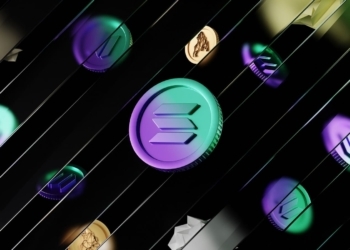Cryptocurrency Wallets are very crucial to Crypto users as they bridge our valuable Digital Assets and the Blockchains.
Several different cryptocurrencies and wallets have emerged with the increased adoption of cryptocurrency.
Some defining knowledge about crypto wallets might be worth having, as they are the keys to our much valuable assets.
Cryptocurrencies and the Blockchain in brief
Cryptocurrencies are algorithmic, cryptographically encrypted codes that are stored within a wide network of computer databases called the Blockchain.
All operations of the Blockchain including transactions of funds, staking or trading are maintained by smart contracts at every end of the computers [nodes for Proof-of-Stake Blockchain, or blocks for Proof-of-Work Blockchain].
What are Crypto wallets and their Functions?
Ownership and access to the funds in the Blockchain are maintained via Crypto wallets.
Crypto wallets do not hold cryptocurrencies. They provide users access and control over their Crypto that are stored in the Blockchain. Transactions, trading, staking, and all features are accessible only via crypto wallets.
A crypto wallet works through a set of public and private keys.
Account numbers are analogous to public keys. They can be freely distributed to anyone, and anyone can submit transactions to them.
Private keys, on the other hand, should be kept private. You might think of them as a type of PIN or verification code that, when combined with the associated public key, provides you access to the blockchain’s actual funds.
Under no circumstances should you ever disclose your private key(s) with anyone else. It’s best to keep them in the safest possible location (e.g. on a paper wallet or a hardware wallet).
It is possible to create public keys from private keys, but it is not possible to create private keys from public keys.
Cryptocurrency can be deposited by anyone in public addresses but only wallet holders with the corresponding keys will have access to withdraw those funds.

Crypto Wallets, classification
Software wallets: software wallets are usually those wallets that are downloadable as apps or accessed directly through the wallet providers’ websites. For computers, they often are in the form of browser extensions. Binance, Coinbase, and Trust wallet are some of the software wallets.
Hardware wallets: Trezor, Nano, Safepal, and Secure X are some of the best hardware wallets. These types of wallets are kept offline, i.e. without being connected to the internet and a device, and function more like a USB or Smart Card. These are extremely safe.
For any activity on the blockchain such as transferring or trading crypto, they need to be connected to the computer or the smartphone. Usually, the crypto whales and exchanges use more of these wallets to keep the keys of the huge funds safe from online phishing and malicious activities.
Paper wallets: These are rarely used. The keys are printed on a piece of paper along with a QR [Quick Response] code which is used only a single time and partial transfer of the fund is not possible.
The Cold storage and the Hot wallet
The Hardware and Paper wallets are categorised as Cold wallets [or cold storage] whereas the Software wallets are the Hot wallets.
The Cold wallets can be kept isolated from the users’ devices and the web. They need no internet connection or backup from the devices to hold the private keys. They work like USB devices or Smart Cards.
Usually, the crypto exchanges, wallet providers, venture capitals, and crypto whales use more of the Cold wallets to store the keys to the bigger funds safely, as these wallets are less vulnerable to hacking and malicious attacks for being not connected to a computer or the smartphone.
The Hot wallets are the Software wallets that are downloaded as apps or browser extensions, and they can’t be kept isolated from the users’ devices. The commonly used wallets such as Binance, Coinbase, Trust Wallet, Metamask, etc are examples of Hot wallets.
Some other wallets we might be hearing about, but they are just Hot wallets with different features.
- Multisig wallet: Wallets that require signatures from multiple users or entities, more like a joint account where a transaction needs inputs from multiple parties to be confirmed.
- Web Wallet: These are wallets that are accessed via the web browser without any need to download or install an app. Good examples are Metamask, BitPay, and Exodus which are available as browser extensions for computers.
- Mobile Wallet: These wallets are available as apps for smartphones. They are equipped with QR codes and code readers for easy access to public keys. Examples are Metamask, Jaxx Liberty, Trust Wallet, and Coinbase App.
- Exchange Wallets: Wallets that are linked directly to exchanges for mostly trading purposes, such as Binance, Kucoin, and Coinbase.
- Micro Wallets: These are wallets that send and receive even very tiny bits of cryptocurrencies.
Depending upon the centralised or decentralised nature, Custodial and Non-Custodial Wallets are two terms that we might often come across.
Custodial wallets are mostly the Exchange Wallets that keep the custody of the assets. The wallet providers hold the seed phrases.
The owners of the cryptocurrency are not responsible for the safety of their assets although there is always the need to be careful from hackers by following routine security measures such as keeping device security up-to-date and avoiding visiting phishing sites and giving away passwords.
Custodial wallets mostly require a KYC [Know Your Customer] verification process which requires a valid I.D. card, proof of address, etc. In case of a forgotten password or loss of a device, there is support available from the exchange to recover the account.
These types of wallets are controlled by the exchanges and are therefore considered as centralised wallets. Coinbase is a good example of a custodial wallet.
Non-Custodial Wallets are the wallets that let users hold the seed phrases. Users are in complete control of the funds. Once seed phrases are lost, it is impossible to recover the funds. No KYC is required in these types of wallets.
Trust wallet, Firefly, Yoroi, Metamask, and all the hardware wallets are some examples of this type. These are decentralised wallets.
Based on the accessibility of Blockchains, their security, and goodwill in the market, users should choose wallets. Some wallets have selected currencies as they belong to selected Blockchains. For example, Firefly is only for IOTA and Tronlink is only for the Tronscan Blockchains.
Some other wallets like Coinbase, Binance, Trustwallet, and Jaxx, have multiple currency storage and have access to multiple Blockchains.
Some wallets charge more fees than others during transactions or trading. Coinbase is a good case of providing the lowest of fees. And Metamask on the other hand, although a very good and secured wallet is an example of high transaction fees.
Many wallets provide passive earning opportunities like savings and staking with APY or APR.
Considering all the factors that have been discussed, users might save up the inconvenience of registering to or downloading multiple wallets and they can as well safeguard their funds and wallet security.












Discussion about this post